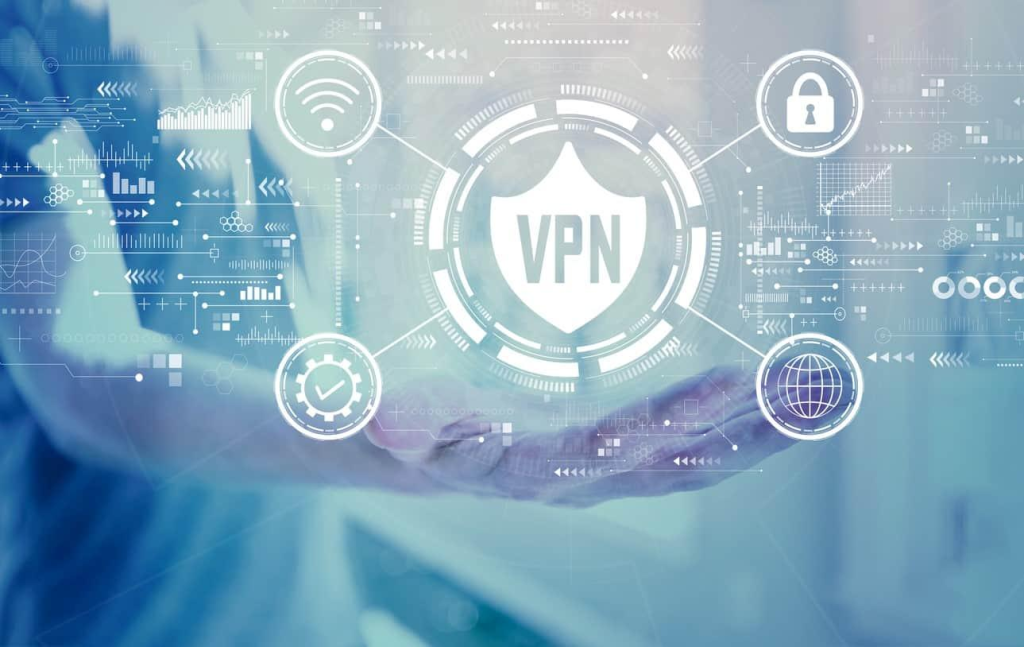In today’s interconnected digital landscape, online privacy has transformed from a luxury to a necessity. Virtual Private Networks (VPNs) have emerged as essential tools for safeguarding your digital footprint and expanding your online access. The benefits of using a VPN extend far beyond basic security, offering comprehensive solutions to numerous challenges modern internet users face daily. This guide explores the most compelling reasons to incorporate a VPN into your digital protection strategy.
Enhanced Online Privacy Protection
Perhaps the most significant among the benefits of using a VPN is the substantial privacy shield it provides against various forms of surveillance and data collection.
Masking Your IP Address
Your IP address functions as your digital identifier, revealing:
- Your approximate geographic location
- Your internet service provider
- A trackable footprint across websites you visit
A VPN replaces your actual IP address with one from its servers, effectively anonymizing your online activities. This prevents websites, advertisers, and other third parties from building comprehensive profiles based on your browsing habits.
Encrypting Your Internet Traffic
Standard internet connections often transmit data in formats that can be intercepted and read by motivated parties. VPN encryption wraps your data in multiple layers of protection:
- Military-grade encryption protocols convert your data into unreadable code
- Secure tunneling prevents even your ISP from monitoring your activities
- Protection extends across all applications and services using your connection
This encryption is particularly valuable when handling sensitive information like banking credentials, personal messages, or private documents.
Secure Access on Public Networks
Public Wi-Fi networks present significant security vulnerabilities that VPNs effectively neutralize.
Protection Against Man-in-the-Middle Attacks
Unsecured public networks at cafes, airports, and hotels are prime hunting grounds for cybercriminals employing techniques to intercept data:
- Without a VPN, your data travels across these networks in potentially vulnerable states
- Hackers can position themselves between you and connection points to capture information
- VPN encryption ensures that even if data is intercepted, it remains indecipherable
Safeguarding Personal Information
The benefits of using a VPN on public networks extend to protecting various personal details that might otherwise be exposed:
- Login credentials
- Credit card information
- Personal communications
- Browser cookies and session data

Bypassing Geographic Restrictions
Access limitations based on geographic location have become increasingly common online, with VPNs offering effective solutions to these artificial barriers.
Accessing Region-Restricted Content
Content availability often varies dramatically depending on your location due to:
- Licensing agreements between content creators and distributors
- Regional copyright restrictions
- Government censorship policies
- Market-specific product offerings
By connecting through servers in different countries, VPNs allow you to experience the internet as if you were physically present in those locations. This capability enables access to streaming content, news sites, and services otherwise unavailable in your region.
Avoiding Price Discrimination
Many online retailers and service providers adjust pricing based on user location:
- Flight tickets and hotel bookings often vary by country of access
- Software and subscription services frequently offer different rates globally
- E-commerce platforms may display different prices to different regions
VPNs allow you to compare prices from various virtual locations, potentially securing better deals on purchases.

Protection from ISP Monitoring and Throttling
Internet Service Providers have significant visibility into customer activities, which a VPN can effectively limit.
Preventing Bandwidth Throttling
Many ISPs engage in selective slowing of certain types of internet traffic:
- Video streaming services are commonly targeted
- Peer-to-peer file sharing often faces restrictions
- High-bandwidth activities may trigger automatic limitations
By encrypting your traffic, a VPN prevents your ISP from categorizing your activities, helping maintain consistent speeds regardless of how you use your connection.
Limiting Data Collection and Monetization
ISPs increasingly collect and monetize user data:
- Browsing histories are compiled and sometimes sold to advertisers
- Usage patterns are analyzed for commercial purposes
- Some providers inject additional advertisements into web pages
A VPN keeps these activities private, limiting the data your ISP can collect and potentially sell.
Enhanced Features of Modern VPN Services
Today’s premium VPN services offer sophisticated capabilities beyond basic privacy protection. Advanced NordVPN features include specialized servers for particular use cases, multi-hop connections for additional security layers, and built-in malware protection. These enhanced functions transform VPNs from simple privacy tools into comprehensive security solutions.
Split Tunneling Capabilities
This feature allows you to route only specific applications or websites through your VPN:
- Banking apps can connect through secure VPN tunnels
- Regular browsing can maintain direct connections for maximum speed
- Streaming services can bypass the VPN to avoid detection
This selective approach maximizes both security and convenience.
Automatic Protection Features
Modern VPNs implement failsafe mechanisms to maintain privacy even during unexpected events:
- Kill switches immediately halt internet traffic if the VPN connection drops
- Auto-connect features activate protection when joining unknown networks
- DNS leak prevention ensures all queries remain protected

Considerations When Choosing a VPN
While the benefits of using a VPN are substantial, selecting the right service requires evaluating several factors:
Privacy Policy and Logging Practices
Not all VPNs deliver equal privacy protection:
- No-logs policies are essential for maximum privacy
- Jurisdiction matters (some countries require data retention)
- Third-party audits verify company claims about data handling
Performance Impact
VPN encryption necessarily adds some processing overhead:
- Server network size affects available bandwidth
- Distance to servers impacts latency
- Protocol options balance security and speed
Compatibility and Ease of Use
The best VPN should work seamlessly across your devices:
- Multi-platform support (Windows, macOS, iOS, Android)
- Easy-to-use interfaces minimize configuration challenges
- Simultaneous connection allowances cover your full device ecosystem
Conclusion: Investing in Digital Privacy and Freedom
The benefits of using a VPN extend far beyond simple anonymity, providing comprehensive protection and enhanced access in our increasingly restricted and monitored digital landscape. While free VPN options exist, premium services deliver more reliable performance, stronger security guarantees, and advanced features that justify their modest subscription costs.
As online threats continue to evolve and digital restrictions multiply, VPNs represent one of the most effective tools individual users can employ to maintain their privacy, secure their data, and preserve their freedom to access information. Consider implementing a trusted VPN service as a foundational element of your digital security strategy.

